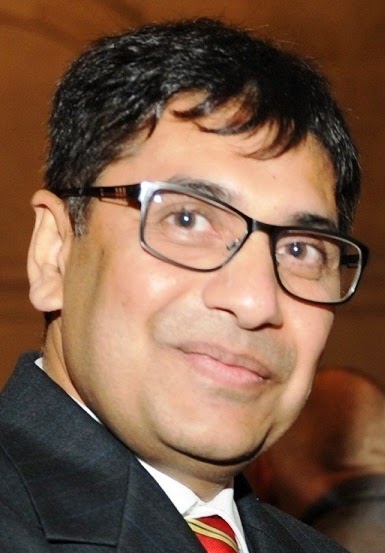Breaking Barriers: Ethnic Diversity and the Future of Ireland's Workplaces
Ireland is experiencing a profound demographic and economic transformation.As our population becomes increasingly diverse, the structures and cultures within our workplaces must evolve in tandem. Yet, while the moral and strategic imperatives of diversity and inclusion (D&I) are now widely acknowledged, the lived realities of ethnic minority professionals in Ireland tell a different story- one of persistent barriers, missed opportunities, and a gap between rhetoric and action.
Earlier
this week, I had the privilege of attending the launch of the report Fostering
Ethnic Diversity and Inclusion in the Workplace, commissioned by the
Bank of Ireland. This document offers a vital and timely assessment of the
state of diversity in Irish workplaces. It pulls no punches in its analysis and
offers a vision of what could—and must—be achieved if Ireland is to remain
globally competitive and socially cohesive.
The Data
Behind the Narrative
According
to the Central Statistics Office (CSO), over one in five people residing in
Ireland today were born abroad. The growth of ethnic minority communities over
the past two decades has been significant, contributing richly to our cultural
and economic life. Despite this, ethnic minorities remain substantially
underrepresented in leadership and strategic decision-making roles,
particularly in high-value sectors such as finance, healthcare, and technology.
The numbers are stark—less than 5% of leadership roles in Irish corporations
are held by ethnic minority individuals, despite their growing presence across
the workforce.
What is
especially concerning is not the lack of awareness but the lack of execution.
The Bank of Ireland report reveals that just 23% of surveyed firms collect data
on ethnic diversity. Without accurate, disaggregated data, there can be no
meaningful accountability, and without accountability, there can be no
progress.
Furthermore,
unconscious bias continues to shape hiring and promotion decisions. Where
diversity policies do exist, they often lack cultural nuance or practical
application. Unconscious bias training is either perfunctory or absent, and
mentorship, crucial for career advancement, is rarely structured with
inclusivity in mind.
The
Economic Case for Inclusion
Diversity
is not a matter of optics or tokenism. It is a proven asset in business
performance. McKinsey & Company reports that companies with diverse
executive teams are 35% more likely to outperform their peers financially.
Moreover, organisations with inclusive cultures see up to 25% higher
profitability and a 30% improvement in employee retention. In a competitive
global labour market, inclusion is not just a social ideal—it is a commercial
imperative.
Ireland’s
open economy, highly skilled diaspora, and reputation for innovation give us a
unique platform to lead on workplace inclusion. But our ability to lead is
contingent on real, measurable change.
Where
Policy Meets Practice
The path
forward is clear, though not easy. First, leadership must embrace diversity as
a strategic priority. This means that CEOs and senior executives—not just HR
departments—must own the agenda. Inclusion must be embedded into corporate
objectives, evaluated with the same rigour as profit and productivity.
Second, meaningful
mentorship and sponsorship schemes are essential. Many ethnic minority
professionals lack access to the informal networks that facilitate promotion.
Structured, outcome-focused mentorship can help bridge that gap, fostering
mobility and a sense of belonging.
Third,
transparency through data is non-negotiable. Organisations must regularly
assess and report on the composition of their workforce and leadership. Data
drives change- without it, we are flying blind.
Fourth, the
government must provide the policy infrastructure to support inclusive
workplaces. Legislation must be enforced with strength and clarity. Incentives
for inclusive hiring practices and penalties for discriminatory conduct must be
applied consistently. As a major employer, the public sector should model best
practices and set high standards for equity and accountability.
Finally,
we must adopt a whole-of-society approach. Businesses, civil society, academic
institutions, and advocacy groups must work together—not in silos—to embed
inclusion into our national economic strategy. It is only through such
collaboration that structural change can be achieved and sustained.
A
Defining Moment for Ireland
Ireland
now stands at a defining crossroads. We can either take decisive steps toward
genuine inclusion or risk falling behind in an increasingly global and
multicultural world. The consequences of inaction are too grave to ignore.
Without change, we not only perpetuate inequality, but we also squander talent,
alienate future leaders, and compromise our collective potential.
As
Chairman of the Ireland India Council and former Chair of the Integration
Centre, I know the untapped talent and aspiration within ethnic minority
communities across Ireland. These individuals are not merely participants in
our economy—they are innovators, educators, entrepreneurs, and leaders in
waiting.
But
potential must be met with opportunity. Representation must be earned through
access, support, and fairness. Diversity must not be 'managed'—it must be
championed.
The
report launched by the Bank of Ireland is more than a diagnostic tool—it is a
blueprint for transformation. Let us not allow this moment to pass as another
exercise in reflection. Let us treat it as a catalyst for structural, permanent
change.
Inclusion
must move from being a value we speak about to a value we act upon. The promise
of a fair, innovative, and prosperous Ireland depends on it.
*********
#GlobalDiversity #MigrationAndWork #EquityForAll #UnityInDiversity #InclusiveEconomies
#SocialJusticeInWorkplaces




Comments